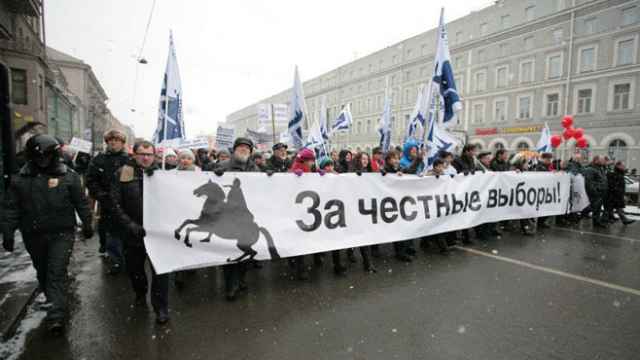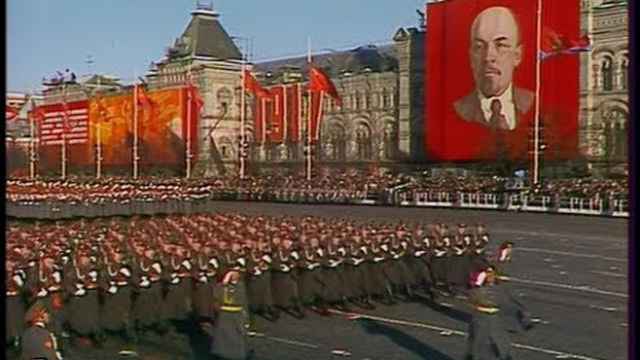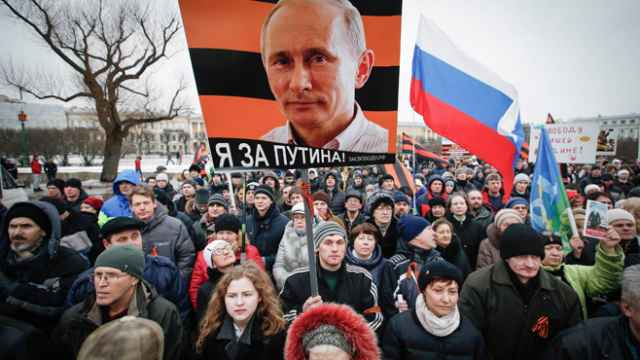The U.S. Supreme Court decision legalizing same-sex marriage has caused a great deal of excitement in Russia. That is not surprising: anti-U.S. sentiment and homophobia are the two most important ingredients in the ideological cocktail that the Kremlin has been forcing down the throats of the Russian people.
The notion that the opponents of the ruling authorities are not only agents of influence of the U.S., but also homosexuals, has become so common that it is almost axiomatic in some circles. The U.S. Supreme Court decision is the cherry atop the sundae that the Kremlin long ago whipped up: In the excited minds of those fighting Washington's imperialism, the U.S. has finally proven itself a hotbed and promoter of sexual deviance.
The lively online debate is not accompanied by any substantive discussion of the topic in the press. The reason is clear: to do anything but condemn gay marriage and relationships risks incurring charges of illegally promoting homosexual activity. On the other hand, the widespread and primitive pseudo-logic of the argument "If you're not homophobic, you're gay" — and its popular LGBT counterpart, "All homophobes are closet gays" — are both so "loaded" as to compel any prudent citizen to remain silent on the subject rather than risk ridicule.
The squabbling on the Internet is just a rehearsal for the broad and open discussion of this sensitive issue that Russia will have to make in the distant, or perhaps not so distant future. Politicians and commentators can argue all they want that this topic is irrelevant to Russian society, but the fervor of their words indicates otherwise.
Same-sex marriage in the United States is simply the most recent example illustrating a sad fact: with no opportunity in modern Russia to hold a constructive debate on a number of pressing issues, Russians have practically no option but to discuss the problems of other countries. The authorities actually encourage such behavior, in part through specific tactics on the Internet. They skillfully channel Russians' critical and negative attitudes outward, away from Russia's problems.
Russia is full of "Euro-sceptics" and "Euro-optimists" who debate the prospects of the European Union and EU membership for this or that country. They prefer endless squabbles over what will happen with Greece and Britain to any discussion of Russia's future in Europe.
The taboo concerning the issue of migrants in Russia is offset by the constant debate over the migrant situation in Europe: even among Russians who have never left the country, there are many such self-appointed "specialists" who are always ready to discuss the failure of multiculturalism in France and the problem of Turkish integration in German society.
The subject of federalization and the relationship between the regions and the center — a topic of great import in Russia — finds no discussion here, but is actively debated with regard to Ukraine. This is despite the fact that, according to their constitutions, Russia is a federal state, but not Ukraine.
It would be nice to believe that all of this energy will eventually get focused on Russia's domestic problems and a search for solutions to them. However, Russian society is presently far more interested in discussing the problems of other countries and gay marriage in the U.S. than the domestic economic crisis and its increasingly uncertain prospects.
Fyodor Krasheninnikov is the president of the Institute for Development and Modernization of Public Relations in Yekaterinburg. This comment originally appeared in Vedomosti.
A Message from The Moscow Times:
Dear readers,
We are facing unprecedented challenges. Russia's Prosecutor General's Office has designated The Moscow Times as an "undesirable" organization, criminalizing our work and putting our staff at risk of prosecution. This follows our earlier unjust labeling as a "foreign agent."
These actions are direct attempts to silence independent journalism in Russia. The authorities claim our work "discredits the decisions of the Russian leadership." We see things differently: we strive to provide accurate, unbiased reporting on Russia.
We, the journalists of The Moscow Times, refuse to be silenced. But to continue our work, we need your help.
Your support, no matter how small, makes a world of difference. If you can, please support us monthly starting from just $2. It's quick to set up, and every contribution makes a significant impact.
By supporting The Moscow Times, you're defending open, independent journalism in the face of repression. Thank you for standing with us.
Remind me later.






